Education
Community Vision
Together, we can ensure all children and youth in Broome County have the opportunity to do well in school, graduate on time, succeed in a career, and achieve their full potential.
The Challenge We Face
Broome County currently faces a childcare deficit – there is a need for 1,464 more early childcare slots and 2,434 more after-school care slots to support children and youth. The U.S. Department of Health and Human Services estimates that one in four children, birth to age five, are at risk for developmental delay, leading them to lag behind their peers. Although the graduation rate across Broome County is 86%, rates among Black and economically disadvantaged students are 71% and 76%, respectively. Broome County youth also lack opportunities for civic engagement during out-of-school time. A lack of civic, job and higher education opportunities increases the likelihood that youth will become disconnected from their community and encounter more risks as they transition to adulthood.
Family Enrichment Network Community Assessment; 2020
NYSED; 2019

Goals
1
Increase the quantity and quality of early childcare programs in Broome County.
2
Increase reading proficiency in 3rd-grade assessments.
3
Increase middle school success.
4
Increase high school graduation rates.
What We Plan To Do
Research shows that children who enter school ready to learn are more likely to achieve early reading proficiency, and consequently, more likely to graduate high school on time. Those benefits stack up: students who graduate high school are more likely to find a job that pays a livable wage, live healthier lives, stay out of the justice system, and have children who also graduate high school on time.
Key Strategies
Support early grade literacy, reading proficiency, and school readiness programs
Developmentally and academically prepare children for kindergarten
Provide work readiness and soft skills training for youth
Increase middle school, high school, and post-secondary school success
2023-2024 Projected Impact
- 446 children (ages birth-5) will participate in high-quality early education and care programs
- 895 children (grades K-12) will participate in out-of-school time programming and/or receiving individualized academic or social-emotional supports
- 25 youth (grades 4-12) will be connected to a caring adult through mentorship programs
- 55 youth (grades 9-12) will receive job skills training (technical and soft skills, interest/skills assessment and counseling, and/or internships)
- 133 parents/caregivers of children will be provided with information, resources, tools, trainings, and/or teaching skills to promote early learning and social/emotional development

Did You Know?
Preschool education programs for children 3 and older have been scientifically supported in their ability to increase academic achievement, cognitive skills, and social emotional skills of participating children. Additionally, participation in these programs may also lead to increased high school completion, reduced delinquent behaviors, improved healthy behaviors, improved mental health, and decreased obesity. Access to these programs is likely to decrease disparities.
Scientific evidence supports extracurricular activities for social emotion engagement as a means to increase self-esteem and improve youth behavior. These programs may also improve confidence, social skills, and social networks of participants.
Some scientific evidence supports summer youth employment programs as a strategy to decrease crime and violence and increase employment and earnings. Additionally, these programs may also increase job skills and promote social-emotional skills, ultimately decreasing disparities between populations.
